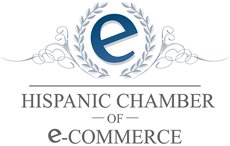The Economist Intelligence Unit has published the E-readiness rankings 2008, and it’s very motivating to see how well some Latin America countries are doing. This article shows you a summary of the results.
The Economist Intelligence Unit defines E-readiness as a measure of the quality of a country’s information and communications technology (ICT) infrastructure and the ability of its consumers, businesses and governments to use ICT to their benefit.
When a country uses ICT to conduct more of their activities, its economy can become more transparent and efficient. The e-readiness rankings also allow governments to gauge the success of their ICT strategies against those of other countries, and provide companies wishing to invest overseas with an overview of the world’s most promising investment locations from the perspective of e-readiness. (Source: The Economist Intelligence Unit)
The Economist Intelligence Unit’s e-readiness rankings methodology model attempts to measure the importance that many unique social, economic and technological factors have in determining the direction of digital development and e-commerce in a market. The model consider 6 different categories:
1. Connectivity and technology infrastructure
Weight in overall score: 20%
Category criteria: Broadband penetration; broadband affordability; mobile-phone penetration; Internet penetration; PC penetration; Wi-Fi hotspot penetration; Internet security; electronic ID.
2. Business environment
Weight in overall score: 15%
Category criteria: Overall political environment; macroeconomic environment; market opportunities; policy toward private enterprise; foreign investment policy; foreign trade and exchange regimes; tax regime; financing; the labor market.
3. Social and cultural environment
Weight in overall score: 15%
Category criteria: Level of education and literacy; level of Internet literacy; degree of entrepreneurship; technical skills of workforce; degree of innovation.
4. Legal environment
Weight in overall score: 10%
Category criteria: Effectiveness of traditional legal framework; laws covering the Internet; level of censorship; ease of registering a new business.
5. Government policy and vision
Weight in overall score: 15%
Category criteria: Government spend on ICT as a proportion of GDP; digital development strategy; e-government strategy; online procurement.
6. Consumer and business adoption
Weight in overall score: 25%
Category criteria: Consumer spending on information and communications technology per head; level of e-business development; degree of online commerce; availability of online public services for citizens and businesses.
There are 70 countries from around the globe that made it to the list. The United States got the number one spot of the list. The Latin American countries that show a level of e-readiness are:
The Economist Intelligence Unit has published the E-readiness rankings 2008, and it’s very motivating to see how well some Latin America countries are doing. This article shows you a summary of the results.
Hispanic businesses that are operating in the United States need to start taking advantage of the IT infrastructure, e-business tools and e-services that are available to all of them. If the majority of the Hispanic Businesses get more engaged in the use of IT and the Internet, they will have a competitive advantage that will be reflected in the growth and development of their businesses.
It’s very motivating to see Latin American countries improving their e-readiness scores year by year. Despite all the barriers that they need to conquer in order to improve their scores, the Latin American countries are working hard to improve the way they use their ICT infrastructure for their benefit.
It’s also motivating to see how consumers, businesses and government feel more comfortable using technology in their daily activities.
Within the following years, we are going to see a higher participation of Hispanic consumers and businesses in the digital economy. The ICT infrastructure in the United States is pretty solid, and we need to start taking more advantage of it. The ICT infrastructure in the Latin American countries is improving. The growth and development of the digital economy are just getting better, let’s try to not stay behind and be part of it, as soon as we can.
The Hispanic Chamber of E-Commerce is going to keep building a very comprehensive online Hispanic Business community one business at a time, and it’s going to keep promoting the use of e-business tools for the success of Hispanic Businesses.
Kind Regards,
Jose Aburto
Source: http://a330.g.akamai.net/7/330/25828/20080331202303/graphics.eiu.com/upload/ibm_ereadiness_2008.pdf
1.12.2009
E-Readiness Rankings 2008
Posted by
HISCEC
at
4:47 PM
0
comments
![]()
1.06.2009
Phoenix Contracting Opportunity

Phoenix is an on-line database in which you register your minority company with the Minority Business Development Agency’s database of minority business enterprises using the Internet. With this tool, you will be able to access contract opportunities and other information vital to the success of your business. You will also be able to receive leads about business opportunities and seek business partners.
The Phoenix database is:
1. Phoenix is free of charge.
2. Phoenix permits you to register once and receive many public and private contract referrals.
3. Phoenix sorts the leads database for you each night and automatically refers opportunities to you via simply worded email or fax. You receive timely information without extensive searching.
As your business grows and you increase your capabilities, you can use your personal
password to update your business profile on-line at any time. When a match is made,
you receive the dollar amount of the contract, time and place for delivery, contact
information and bonding or other requirements. The offering company receives your
corporate contact information, email and Internet home page (if available). You also
receive information about minority business support services that may assist you with bid
preparation, finance or bonding.
To get started, you must be a registered MBE. You can create your FREE MBDA Portal Account by visiting the MBDA.gov website.
If you need assistance with creating your Phoenix profile or if you need assistance with registering for your free MBDA Portal Account, call our support staff at 1 (888) 324-1551 or you may email us at help@mbda.gov.
Posted by
HISCEC
at
9:51 AM
1 comments
![]()












